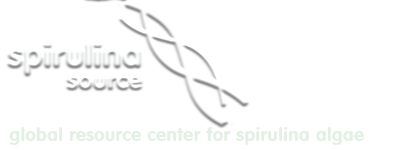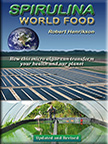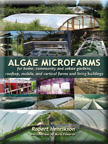by Féfé Khuabi Matondo et al. Pub. in JInternational Journal of Pediatrics, Volume 2016, Article ID 1296414, 5 pages, http://dx.doi.org/10.1155/2016/1296414
Aim. Despite high levels of malnutrition, there is still very little information on the nutritional benefits of Spirulina,anaturalalga that provides essential amino acids, rare essential lipids, and numerous minerals and vitamins, to undernourished children in the world. Methods. We carried out a prospective study of 50 children aged between six and 60 months. The intervention group consisted of 16 children who received 10 g of Spirulina daily, as well as the local diet administered by the nutritional centre, and the control group of 34 children who just received the local diet. Both groups of children were assessed on day zero, day 15, and day 30. Results. After treatment, the weight-for-age 𝑍 scores and weight-for-height 𝑍 scores increased significantly in the intervention group. At day 15, there was a statistically significant difference between the mean corpuscular volume, total proteins, and albumin (𝑝 < 0.05)in both groups, in favour of the intervention group, and at day 30, this difference extended to all of the studied parameters (𝑝 < 0.05). Conclusion. This study found that the nutritional status of undernourished children who received Spirulina supplementsaswellas the local diet administered by the nutritional centre improved quickly and significantly.




